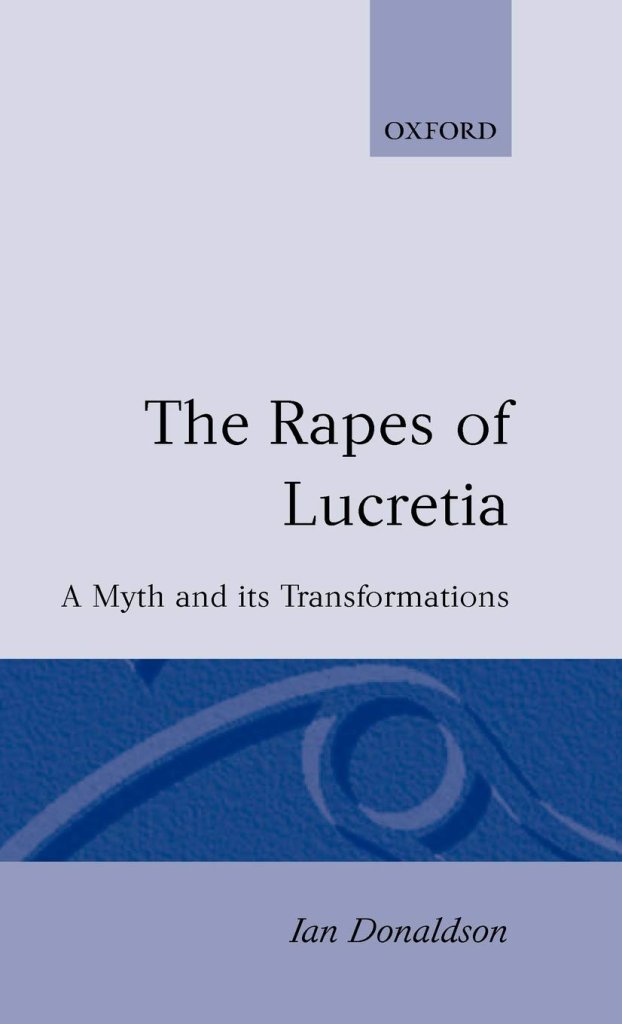The rape of Lucretia …
Leibniz, the founder of optimism, and a great poet as well as a profound philosopher, writes somewhere that in a temple at Memphis there was a great pyramid of globes placed one on top of the other. A priest, who was asked by a traveller what this pyramid of globes represented, replied that these were all the possible worlds and that the most perfect of all was at the summit; the traveller, who was curious to have a closer look at this most perfect of all possible worlds, climbed to the top of the pyramid, where the first thing he saw was Tarquin raping Lucretia.
– Diderot to Sophie Volland, 20 October 1760
The Rape of Lucretia is a poignant Roman myth that has resonated through the ages, not only for its tragic narrative but also for its profound exploration of themes such as honor, virtue, and the consequences of unchecked power. This ancient tale, set in the early days of the Roman Republic, revolves around the virtuous Lucretia and her tragic fate at the hands of Sextus Tarquinius, the son of the tyrannical King Tarquin. Beneath the surface of this tragic story lies a deeper meaning that has captivated the minds of scholars and artists for centuries.
Sextus Tarquinius
The story begins with the Roman noblemen gathered at the house of Sextus Tarquinius. In a drunken contest of boasting about the virtues of their wives, Lucretia stands out as the embodiment of fidelity and virtue. This prompts Sextus to visit her home, hoping to seduce her. His deplorable act of raping Lucretia sets in motion a chain of events that would shape the future of Rome.
The deeper meaning of the Rape of Lucretia lies in the concept of Roman virtue and the significance of honor in the Roman society of that time. Lucretia’s unwavering commitment to her virtue, even in the face of terrible violation, underscores the Romans’ belief in the sanctity of their values. Her decision to take her own life after the assault, rather than living in dishonor, reflects the profound importance placed on personal honor and integrity in Roman culture.
Furthermore, Lucretia’s act of self-sacrifice serves as a critique of the corrupting influence of unchecked power. King Tarquin’s oppressive rule and the actions of his son Sextus epitomize the tyranny that the Roman Republic sought to escape. Lucretia’s death becomes a catalyst for the overthrow of the monarchy and the establishment of the Roman Republic, emphasizing the idea that the abuse of power ultimately leads to its downfall.
Source of inspiration
The Rape of Lucretia has been a source of inspiration for countless artists, writers, and thinkers throughout history. Shakespeare’s play “The Rape of Lucrece” and Botticelli’s painting “The Story of Lucretia” are just a few examples of how this myth has been interpreted and reimagined across different art forms. These adaptations often explore the psychological and emotional aspects of the characters, adding depth to their motivations and struggles.
In addition to its artistic interpretations, the Rape of Lucretia has had a lasting impact on the development of political thought and philosophy. The Roman historian Livy, in his work “Ab Urbe Condita,” uses the story to discuss the moral decline of Rome and the importance of virtuous leadership. Similarly, the Roman philosopher Cicero references the story in his writings on justice and the rule of law.
The Rape of Lucretia, as a myth, serves as a cautionary tale about the consequences of immorality, the abuse of power, and the enduring value of personal honor and virtue. It sheds light on the complexities of gender dynamics in ancient Rome and has left an indelible mark on the cultural and intellectual history of the Western world.
The book
This book sets out to explore the myth, examining its origins and changing fortunes, and looking at some of the ways in which, over many centuries, it has been interpreted, criticized, elaborated, and transformed. Its aims are (in turn) interpretative, not encyclopaedic. It is not intended to be an exhaustive survey of all versions of the Lucretia story in European art, literature, and controversial writing, but a critical examination of certain decisive stages in the evolution of that story, and of certain versions which have seemed to be of particular interest either in their own right or for their bearing upon the larger questions which the book pursues.
Augustine’s remarks
The first part of the book concentrates upon the actions and dilemmas of Lucretia herself, and upon the debate set in train by Augustine’s remarks about her decision to take her own life after being raped by Sextus Tarquinius; a debate which in turn reflects changing ideas about the distresses and stigmas of rape, and about the ethics of suicide. Part Two looks at the role of Lucius Junius Brutus, at the various ways in which the story has been politically interpreted, especially during periods of revolution, and at changing attitudes to the character and motives of Brutus himself.
The final section attempts to place the whole story in a wider context, and to suggest that changing interpretations of the story are to be seen in relation to much larger shifts of thought about Roman ideas of heroism and moral conduct; glancing at the analogous case of Cato of Utica, whose story becomes curiously intertwined with that of Lucretia and Brutus.
This book itself aims to present a narrative, a story about a story; and it is therefore written in such a way as to be easily and consecutively read by general readers as well as specialists in particular fields of study.
IAN DONALDSON – Rapes of Lucretia: A Myth and Its Transformations





